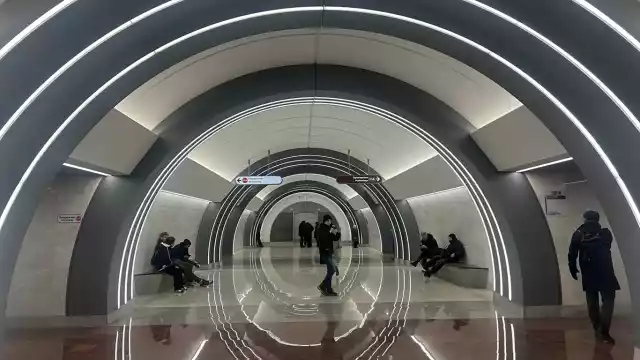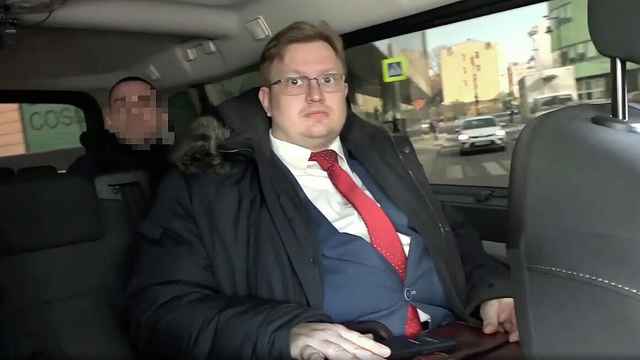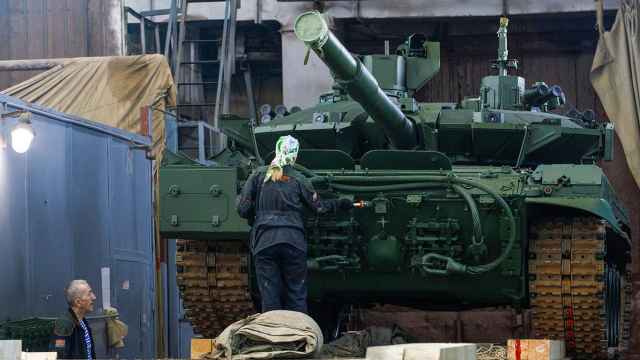The Communists submitted to the State Duma a proposal in line with the UN's anti-corruption convention that would confiscate property of dubious origin from officials, but it remained unclear Tuesday whether United Russia would support it.
The bill, posted on the Duma's web site Friday, ratifies several articles of the 2003 convention against corruption, including one on "illicit enrichment," or, as the United Nations also defines it, "a significant increase in the assets of a public official that he or she cannot reasonably explain in relation to his or her lawful income."
The bill is to be revised by the Duma's International Affairs Committee, with no date for a first reading scheduled as of Tuesday. If it passes, lawmakers will be able to amend the Criminal Code to allow the confiscation of property that officials cannot account for, the Communist Party said on its web site Tuesday.
Russia ratified most of the articles of the anti-corruption convention in 2006 and later amended laws to incorporate all its articles, but it skipped the clause on prosecution for "illicit enrichment," saying it violated the presumption of innocence.
But the bill's authors, Sergei Obukhov and Alexander Kulikov, said in a note attached to the draft that the "far-fetched and unfounded" argument about presumption of innocence was voided by two rulings of the Constitutional Court in the early 2000s.
A 2001 ruling allows authorities to set additional job requirements for certain types of officials, and a 2004 verdict specifies that a person who takes a government position "voluntary agrees to conditions" linked to this position, the note said.
A senior United Russia deputy criticized the proposal as redundant but could not say whether his party would approve it.
"If authorities have questions about the property of an official, investigative bodies can conduct a check," Andrei Klimov, deputy head of the International Affairs Committee, told The Moscow Times.
Obukhov called Klimov's argument "cunning" because very few actual checks have been conducted in such situations.
"If that was the case, then at least one criminal case would have been opened," Obukhov said by telephone.
Officials have been obliged by President Dmitry Medvedev to submit income declarations since 2009, but they do not have to account for sources of their wealth. At least one bureaucrat has faced a criminal case for submitting a false income declaration.
Obukhov said the Communist Party and the now-defunct nationalist Rodina party asked the Prosecutor General's Office to investigate the source of income of the senior United Russia Deputy Vyacheslav Volodin in 2006, but prosecutors replied that they had "no legal mechanism" to do so.
Medvedev authorized in fall 2009 the Kremlin directorate for state service and the Cabinet chief of staff to open reviews of income declarations, but both the directorate and the official later publicly shrugged off responsibility.
A Message from The Moscow Times:
Dear readers,
We are facing unprecedented challenges. Russia's Prosecutor General's Office has designated The Moscow Times as an "undesirable" organization, criminalizing our work and putting our staff at risk of prosecution. This follows our earlier unjust labeling as a "foreign agent."
These actions are direct attempts to silence independent journalism in Russia. The authorities claim our work "discredits the decisions of the Russian leadership." We see things differently: we strive to provide accurate, unbiased reporting on Russia.
We, the journalists of The Moscow Times, refuse to be silenced. But to continue our work, we need your help.
Your support, no matter how small, makes a world of difference. If you can, please support us monthly starting from just $2. It's quick to set up, and every contribution makes a significant impact.
By supporting The Moscow Times, you're defending open, independent journalism in the face of repression. Thank you for standing with us.
Remind me later.





